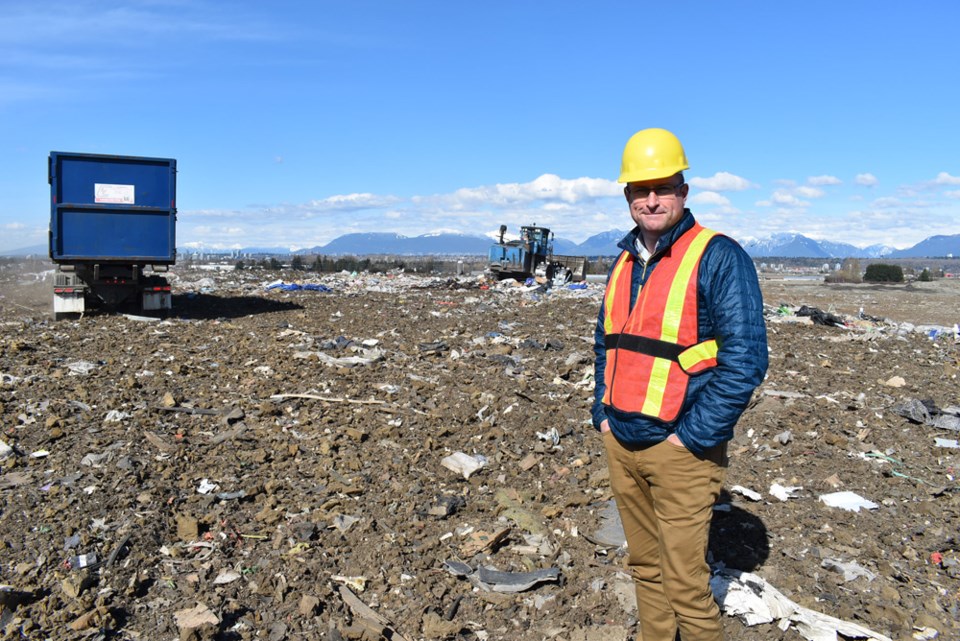A landfill in east Richmond - that takes in half of the region’s construction and demolition waste - wants to double how much it recycles.
The landfill company Ecowaste hopes a recent decision by the province to remove their 150-acre property from the Agricultural Land Reserve (ALR) – something done without consulting city council which had already rejected this notion – will provide a pathway forward to build a $50 million recycling facility.
The 150 acres has never been farmed.
In fact, 300 trucks come daily to the property to dump construction and demolition waste at the property located east of No. 6 Road between Williams and Blundell roads.
Ecowaste buries about 200,000 tons every year, and this is after 33 per cent of the material coming to the landfill has been recycled.
Christian Dietrich, vice-president of recycling and waste services, estimates it could recycle double that amount, if it could build the recycling facility.
This would divert more wood, plastic and metal from the mixed loads they take in.
These types of facilities have been used in Europe for 30 years already, Dietrich said.
In fact, he noted, in Germany, it’s illegal to ship construction and demolition waste to the landfill.
Provincial decision will 'open the floodgate': Harold Steves
Former Richmond city Coun. Harold Steves, who wrote the ALR policy when he was an MLA in the early 1970s, took to Twitter to express his displeasure at the provincial decision to pull the land out of the ALR, saying it would “open the floodgates” and more farmland would consequently be lost, for example, land owned by the Port of Vancouver.
But Dietrich takes issues with speculation Ecowaste wants to eventually use the land for industrial development, like they’ve done on their adjacent site, insisting they are just interested in expanding their ability to recycle.
“There’s no basis for that – I can say that’s not the stance of Ecowaste,” Dietrich told the Richmond News.
Ecowaste was stuck in a regulatory bind before the province announced suddenly a week ago it was just pulling the land out of the ALR.
In 2019, the province changed its ALR regulations to no longer allow landfills in the ALR.
This meant the landfill couldn’t extend its non-farm use permit from 2035 to 2055. Ecowaste claimed they needed the extra 20 years in order for the investment in the recycling plant to be economically feasible.
They came to city council asking them to forward an application to the Agricultural Land Commission (ALC) to pull the land out of the ALR.
City council gave an emphatic, unanimous “no.”
With the province pulling the land out, however, this has sidestepped city council's decision.
But the question remains what the city will do next, and Mayor Malcolm Brodie said council is expecting information from its staff "imminently" on how to move forward.
The land, although now out of the provincial ALR, is still zoned “agricultural” by the City of Richmond and only city council can change that zoning.
According to Steves, the original agreement of the Ecowaste land was they would fill it with “inert” material, and then top it with soil and it would revert to farming.
Steves noted on Twitter when Bill Vander Zalm was premier, he pulled the Terra Nova lands out of the ALR, but city council stopped rezoning it, and a large portion remained agricultural.
Dietrich, however, pointed out the land is filled with contaminated material – wood treated with creosote, insulation, plastic, etc. – and questioned why anyone would want to grow food on it.
Ecowaste’s south landfill was at capacity in the year 2000, and, as it’s zoned industrial, it’s currently being converted into an industrial park with 12 to 14 buildings planned on that section. Two so far have been built.



